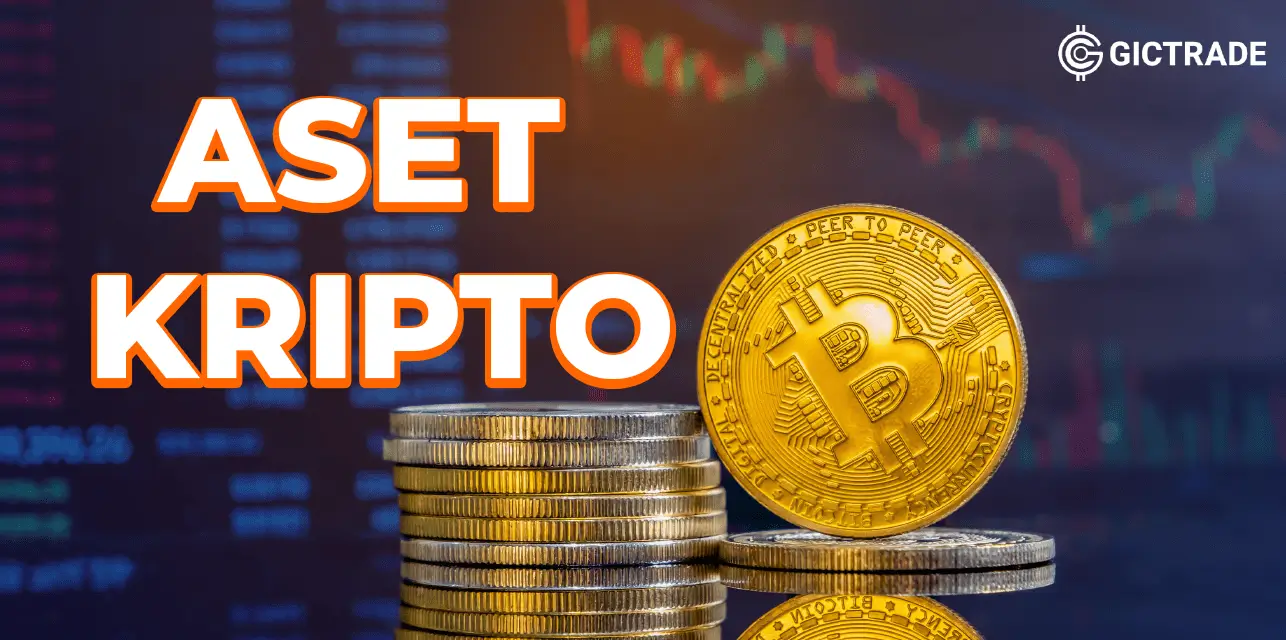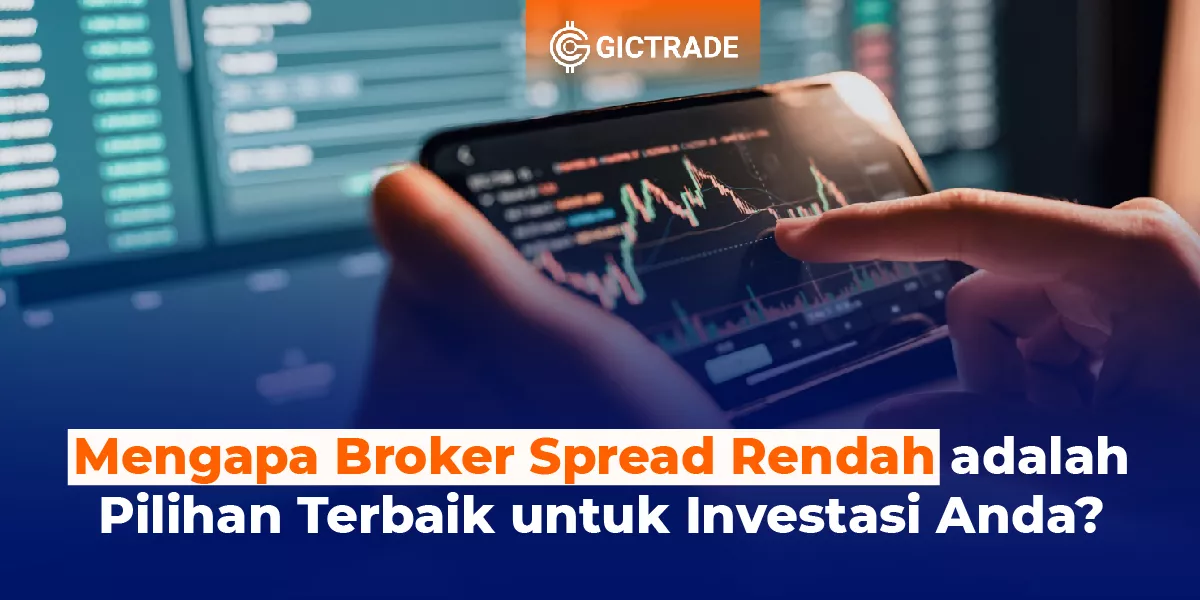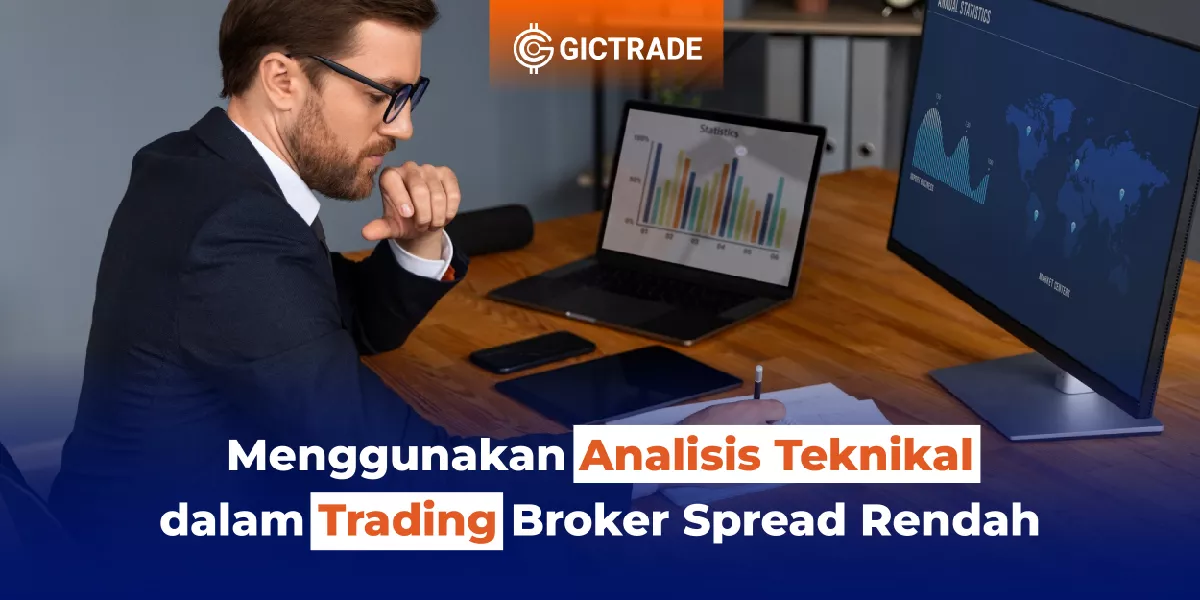Crypto assets are one of the options if you want to invest your money. Entering industry 4.0 or commonly referred to as the digital era 4.0, the high value of an asset is not only in physical form. In this digital era, an asset can be digital, for example crypto, not only can it be an asset, even if it can be decentralized well, crypto 'may' be a means of exchange as an alternative to conventional currency. Let's understand together about what crypto assets are, see the writing below, before that if you are a trader who wants to learn more about trading, you can access the GIC website and read articles for professional classes.

Getting to Know Cryptography Terms
Before understanding what crypto assets are, you must know what the term cryptography is. See below:
Cryptography
Cryptography is a method for protecting communication and information through the use of codes, ultimately only those who are the target can or can process and read it. In the IT world, the term cryptography refers to communication and information techniques that are safe from mathematical theory and calculations based on rules called algorithms, to change messages in a way that is complicated enough to be deciphered and solved. This deterministic algorithm is applied to digital signatures, verification to protect data privacy, confidential communications such as email and credit card transactions, creating cryptographic keys, web browsing and also Cryptography is the scientific study of special secure communication techniques that only the sender and recipient of the intended message can see its contents. If interpreted linguistically, the term Crypto comes from the Greek word kryptos, the meaning of the word is hidden. This is closely related to encrypted (encryption), which is the practice of mixing or scrambling plain text into a ciphertext and then back again when it arrives. In addition, cryptography includes obscuring information on or in images using techniques such as merging techniques or microdots. It is said that people in ancient Egypt used this method or technique in complex hieroglyphs. In addition to ancient Egypt, Roman Emperor Julius Caesar is credited with using one of the first modern codes or ciphers. When sending electronic data, the most dominant use of cryptography is to decrypt and encrypt text messages and other emails. The simplest method uses a symmetric or "secret key" system. Here, the data is encrypted using a secret key, and then the encoded message and the secret key are sent to the recipient to be decrypted. The problem? If the message is intercepted, a third party has everything they need to decrypt and read the message. To solve this problem, cryptologists designed an asymmetric or "public key" system. In this case, each user has two keys: one public and one private. The sender requests the public key from the intended recipient, encrypts the message and sends it along. When the message arrives, only the recipient
What Are Crypto Assets?
Cryptoassets are representations of digital value secured by cryptographic means that can be transferred, stored, or distributed electronically. They use some form of distributed ledger technology such as blockchain. Cryptoassets are digital assets that use cryptographic techniques to create a medium of exchange for financial transactions. Cryptocurrencies, utility coins, security tokens are all different types of cryptoassets. Cryptoassets represent a seismic shift in the financial markets and, in recent years, have grown in popularity. The technological advancements behind cryptoassets have come a long way and have the potential to disrupt the financial system as we know it. Central banks and other financial institutions can play a key role in shaping this landscape. However, this global phenomenon is creating confusion on several levels, namely how individual cryptoassets differ from each other and the roles of key participants in the cryptoasset ecosystem. With the buzz surrounding bitcoin, altcoins, cryptocurrencies, and tokens, an entirely new financial ecosystem has been created. As more institutions operating in the capital markets grapple with the implications of cryptoassets, costs and regulatory uncertainty remain concerns for traders as the cryptoasset market continues to expand beyond the range of fiat currencies it supports. This white paper explores the crypto asset taxonomy, market participants, and the current capital markets landscape.
How to Get Crypto Assets
Here are the steps to get crypto assets:
1. Choose a Crypto Exchange or Broker
The first step is that you have to carefully choose a trusted broker or crypto exchange company.
2. Create and Verify Account
After choosing a crypto exchange or broker, then register to create an account. Depending on the amount planned and the platform you must verify your identity. This step is one of the important steps to prevent fraud and also to meet the requirements according to federal regulations. You cannot buy or sell Cryptocurrency until the verification process is complete. The platform you use may ask you to send a copy of your identity in the form of a passport or driver's license and may also be asked to upload a selfie to prove that the photo sent is really the person concerned.
3. Deposit Money for investment
Crypto buyers must ensure that you have sufficient funds in your bank account. You can transfer or top up money to your Crypto account by listing your bank account. Authorize a wire transfer or make a payment with a debit or credit card. The time depends on the broker or exchange and the funding method you use, you may have to wait a few days before you can use the money you have deposited to buy Crypto currency.
4. Placing Cryptocurrency Orders
Once you have funds in your account, you are ready to place your first Cryptocurrency order. There are hundreds of Cryptocurrencies to choose from, from the well-known like Bitcoin and Ethereum to Crypto, including Theta Fuel and Holo. When deciding which Cryptocurrency to buy, you can enter the Bitcoin ticker symbol, for example BTC and how many coins you want to buy. With most brokers and exchanges, you can also buy fractional cryptocurrencies. This allows you to buy high-value tokens like Ethereum or Bitcoin without having to own thousands.
5. Choosing a Storage Method Cryptocurrency exchanges are not backed by protections like the FDIC (
Federal Deposit Insurance Corp.) and are very vulnerable to hacking. You can even lose your investment if you forget the code to access your account. That is why it is important to have a safe place to store your Cryptocurrency. As mentioned earlier, if you buy Cryptocurrency through a broker, you may not have much choice about how your Cryptocurrency is stored. If you buy Cryptocurrency through an exchange, you will have more storage options, namely
: Leaving Crypto on the exchange. When you buy Cryptocurrency, it is usually stored in a Crypto wallet that is attached to an exchange. If you are not happy with the provider that your exchange partners with or want to move it to a safer place, you can transfer it from the exchange to a separate hot or cold wallet. Depending on the exchange and the size of the transfer you are making, you may have to pay a small fee to do this.
Hot Wallets. These are Crypto wallets that are stored online and also run on internet-connected devices, such as mobile phones, tablets and computers. While hot wallets are convenient because of their convenience, they still carry a higher risk of theft or scams because they are still connected to the internet.
Cold Wallets. Unlike hot wallets, cold crypto wallets are not connected to the internet. This makes them the safest option for storing crypto. Cold wallets take the form of external devices, such as hard drives or USB drives. However, you should be careful with cold wallets, because if you lose the ‘key code’ associated with them or the device is damaged or fails, you may never get your Cryptocurrency back. While the same can happen with certain hot wallets, some are operated by custodians who can help you get back into your account if you are locked out. Here is an explanation of crypto assets, you can start considering having digital assets starting now. Don't forget to
register trading at GIC to try to start having digital assets.



 Last:
Last: 







